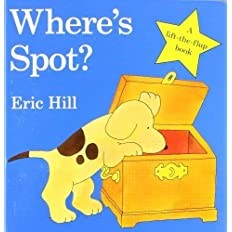
Hello Book Bums families!
Book Bums has a new phone number! We were having many difficulties with our previous provider and, as a result, we had to change our number. We know it’s inconvenient, and we apologize for that. For us, it was worth the inconvenience in order to move to another business who will serve us well.
Book Bums - 513-600-4903

Bookbums.com is an Amazon Associate; We earn from qualifying purchases. This means that if you click on a link to Amazon.com and make a purchase, We may earn a small commission at no extra cost to you. We do recommend the products. Feel free to find them by other means.
Word of the Week
enhance (en-hanss) verb/action word - to make something better
The pastry chef enhanced the recipe by adding cinnamon chips.
Literary Calendar
• The first full week of March is Read an eBook Week.
• eBooks often have tools that can enhance your reading experience such as bookmarks, enlarging the text, and looking up the meaning of unfamiliar words.
• Free apps like Libby and Hoopla are available to access eBooks through your library and start enjoying them today.
Tips for Families
If your kids don’t like to read—and they’re skilled readers, you can actually change their minds about reading!
1. Frame reading time like it’s a joy, not something kids HAVE to do. The words we choose are powerful at conveying messages and, too often well-meaning parents unknowingly make reading sound dreadful.
2. Have cozy spots for everyone to enjoy their books, together. Providing pillows and throw blankets adds to the fun. Create a hushed, snuggly space. (If teachers can get 28 first graders to get seated, silent, and settled— you can do it too.)
3. Never set a timer to get assigned reading done. Timers take attention off of the reading and onto the timer.
4. You read your books while your kids are reading theirs. Be on hand to help (with tricky words, word meanings, encouragement, etc.), as needed. After a while, to end your family reading time, tell kids, “When you get to a good stopping place, come tell me something interesting about what you’ve read, and then you can do something else that’s fun.” As a classroom teacher, I’d often allow kids to continue their reading in the hallway if they just had to keep reading. Treat reading like the magic it is.
5. Resist bribing your kids to read. That bribing makes reading seem like a task one must endure to get something good.
6. Don’t assign reading logs. Though some readers actually like keeping a book log to remind them of the books they’ve read and how well they liked each one, tracking minutes and having a parent sign off on them makes the reading feel like work.
7. Allow extra minutes at bedtime, before turning lights out, when your kids are reading.
8. Talk about the books you’re reading with your kids and ask about the books they’re reading too, but make it conversational—not like a quiz.
9. Visit the library and/or bookstore often. Ask for recommendations from the adults in the kids’ section.
10. Give your kids bookstore gift cards for special occasions. While at the bookstore, do your best to make it a trip your child wants to repeat. Hot cocoa at the café, reading some picture books together, and going out to lunch afterwards makes the gift a treasured experience. Don’t worry if they’re not thrilled with the gift when they first receive it. They will be thrilled the NEXT time!
11. Support your kids’ schools by attending Book Fairs. Who doesn’t love a school book fair? If your kids are attracted to the more toy-like items, kindly remind them that we can get great toys at toy stores. At book fairs, we buy books.
12. Let kids choose books they’re interested in. Understand that some books carry some social clout and allow for that. Encourage them to investigate both fiction and nonfiction books.
13. Remember that picture books are not necessarily easier to read than chapter books. In picture books, authors are limited to very few words to convey their messages, so they often use more robust vocabulary—which is great! But it may be difficult for beginning readers to decode the words and understand their meanings. Whereas many children’s chapter books are written with beginning readers in mind, and they use more familiar, easily decodable words. Chapter books are often a lot cheaper for the volume of entertainment they provide, and they are long enough to create the habit of reading whereas picture books are finished in one sitting, and there’s no pull to continue reading.
14. Refrain from requiring kids to choose books “at their level.” Try saying, “I’m happy to get that book for you, but it might require that I help you with it. Does that sound good to you?” We know from the research that struggling with difficult texts is exactly what kids need to grow their skills. And there is no denying that desire inspires lots of kids to successfully navigate books that are beyond what some educators call “just right.”
15. If the words on the page are too hard for your kids to decode, offer to read the book to them while you deliberately work on building their phonics skills and language comprehension.
From our Bookshelves

Ann Patchett may be more well-known for her novels, but this new book of essays is a treasure. She reflects on reading, writing, family relationships and mortality, knitting, and Snoopy in a way that feels both profound and like talking with a friend. If essays are new for you, this book is a wonderful place to begin. You can read one in just a few minutes or relax for an hour with as many as you like.
"Reading fiction not only develops our imagination and creativity, it gives us the skills to be alone. It gives us the ability to feel empathy for people we've never met, living lives we couldn't possibly experience for ourselves, because the book puts us inside the character's skin."
-Ann Patchett
Tips for Readers and Writers
From Dr. Christy ~
My grandson is almost two, and a few weeks ago he read the Where’s Spot lift the flap book with me about 15 times in a row. He did not tire of the repeated readings at all. In fact, he enjoyed every single flap, as he shook his head and said, “No!” each time he revealed, one by one, a variety of animals— but no Spot. It was such fun, and I truly treasured the moment!
It got me thinking about kids and how they learn. Children develop their memories as they repeat tasks. They also learn that if they don’t understand something right away, they can work at it and, with repetition, they can learn how it works. That satisfaction sets them up with confidence for later learning—in school and beyond.
Older kids are similar. They need repetition to solidify the skills they’re working to grow. If we can make that repetition interesting and rewarding, the repeated practice isn’t at all insulting or boring. It feels good. And as kids master one skill, that skill is available for connecting with new, complementary skills.
It’s a wonder to think that such a complex skill, learning to read, begins by searching for Spot under lots and lots of cardboard flaps.

Wordology Workshop
- Remember from last week that the Latin root voc means voice or call.
- Here are some voc words we thought of: invocation, revoke, vocal, and advocate.
- Consider how each word has something to do with using your voice.
Practical Grammar
Practical Grammar
Which word would best fit this sentence? Farther or further?
a) We’re heading _________ south.
How about this one?
b) I’ve pushed the car with low fuel_________ than I should have.
And this one?
c) I’d like to discuss this_________, after the meeting.
Last one . . .
d) If you complain _________, I’m going to take you back home

Here’s the simple explanation:
As adverbs, generally, farther has to do with literal distance while further is used for figurative distance.
So . . .
a) farther b) farther c) further d) further
How did you do?
Okay, so what about this one?
Before we go any _________, let’s decide who’s driving.
It could literally mean, before we travel any more in this direction or it could mean before we move forward in this conversation. The good news is, in ambiguous cases, it doesn’t matter which one you use. Ugh.
Now, what’s up with this ad?

Is further used correctly? Doesn’t Ford want buyers to go farther?
Like most things, the waters are being muddied, and much of what was considered incorrect is becoming accepted.
Let’s agree not to look at this further, and use farther, only, when talking about literal distance.
*It should be noted that further has the additional meaning of “additionally” or “moreover.”
The young man offered no further information.
If you know someone who would benefit from our newsletter or tutoring at Book Bums, please share this email with them! Thank you.
Copyright © 2024 Book Bums, All rights reserved
Our mailing address is:
7967 Cincinnati-Dayton Road Suite L
West Chester, OH 45069

